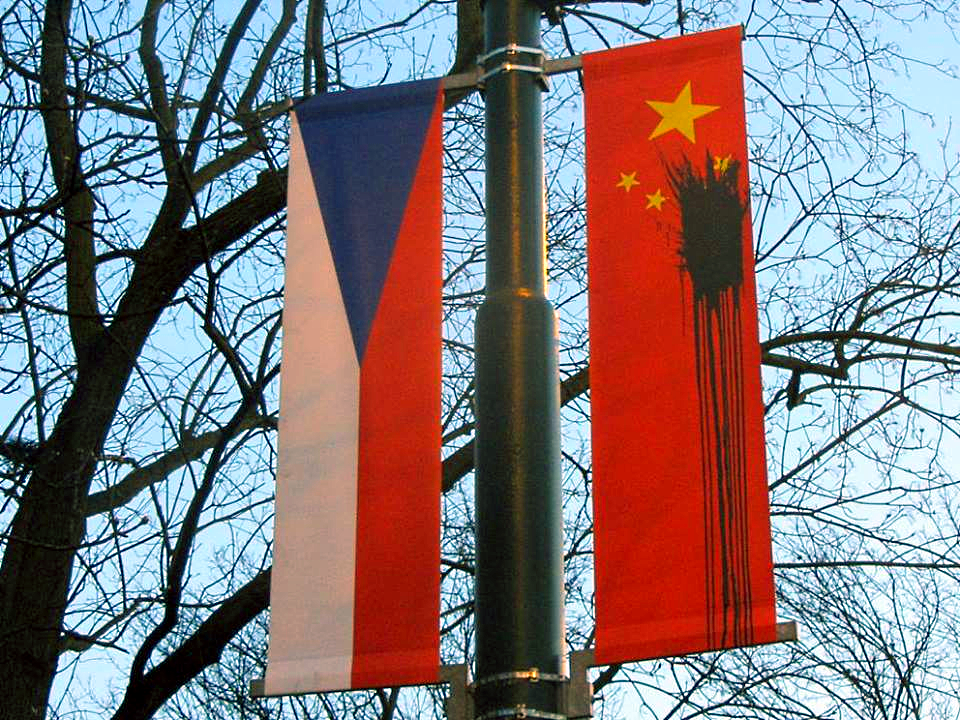Prague, Oct 7 (CTK) – Prague will withdraw from its sister pact with Beijing as China is unwilling to debate Prague’s demand that a statement on Prague’s recognition of One China be deleted from it, the City Council decided today.
The partnership agreement was approved by Prague under the previous mayor Adriana Krnacova (ANO) in February 2016, with the then opposition criticising its wording.
The city’s withdrawal from it still needs to be approved by the City Assembly.
China repeatedly criticised Prague’s intended step through diplomatic channels.
Prague’s current leadership, with Mayor Zdenek Hrib (Pirates) at the head, called on Beijing to discuss the deletion of the above formulation in January. The negotiations continued in writing, with the Chinese side reacting negatively to Prague’s repeated proposals to delete the pact’s Article 3, and not reacting to its latest urgency at all.
As a result, Prague decided to withdraw from the pact.
China’s representatives previously said Prague’s approach harms Czech-Chinese relations.
Prague Councillor Hana Kordova Marvanova (for Mayors and Independents, STAN), who initiated the withdrawal, told CTK on Friday that the previous approval of the Article 3 was unusual.
“Political declarations have no place in cooperation agreements between capital cities. I disagree with Prague using this way to show support for China’s current authoritarian regime,” Kordova Marvanova said.
By deleting the given article, Prague would show it disapproval of human rights violation in China, she said.

Kordova Marvanova today added that if the City Assembly approves the abrogation of the pact next week, Mayor Hrib will send it to China immediately, “thereby bringing the whole affair to an end this year.”
“I think the proposal will gain support across the political spectrum in the City Assembly’s upcoming vote,” said Michaela Krausova, chairwoman of the Assembly’s Pirate group.
Czech Prime Minister Andrej Babis (ANO) and Foreign Minister Tomas Petricek (Social Democrats, CSSD) emphasised that the cabinet respects the One China policy but cannot influence the Prague City Hall’s decisions.
Apart from public protests, China reacted to Prague by cancelling the previously planned concerts of Prague ensembles.
The dispute between Beijing and Prague has afflicted Czech-Chinese relations that had not been optimal even before. One year ago, they were affected by the Czech Cyber and Information Security Office’s (NUKIB) warning against products of the Chinese Huawei and ZTE companies.
China then protested and the Chinese ambassador had talks with Babis, who, however, labelled the ambassador’s subsequent interpretation of their meeting as “a lie”.
According to the Czech Industry Confederation, the expectations of China’s promised investments in Czechia have not been met so far, and Prague’s efforts to remove some barriers to the Czech entry onto the Chinese market have been a failure.
The Prague-Beijing agreement from 2016 anchors bilateral cultural and economic cooperation. Its Article 3, declaring Prague’s recognition of One China, met with a wave of criticism. The then opposition at the City Hall, TOP 09 and the Civic Democrats (ODS), said similar clauses have no place in inter-city agreements and no such clause appears in similar sister pacts signed by other European cities.
Krnacova’s City Council defended itself saying that Beijing had set the Article 3 as a condition for it to loan a panda to the Prague zoo. The loan never took place, however.
rtj/dr/kva












 Reading time: 3 minutes
Reading time: 3 minutes 


























